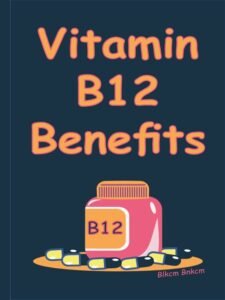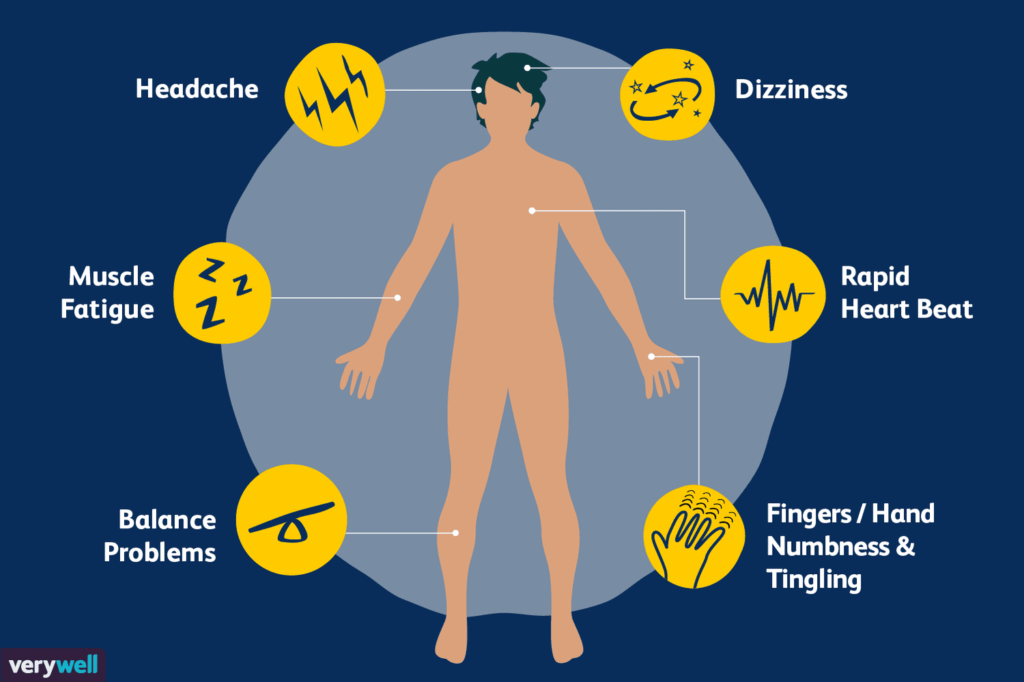Introduction: Wellhealthorganic Vitamin B12
Vitamin B12 is a vital nutrient that plays a crucial role in maintaining overall health and well-being. It is essential for red blood cell formation, neurological function, and DNA synthesis. As part of the Wellhealthorganic.com health and wellness content, this comprehensive guide explores the importance of Vitamin B12, its benefits, sources, and how to ensure you are getting an adequate amount of this crucial vitamin.
What is Vitamin B12?
Overview
Vitamin B12, also known as cobalamin, is a water-soluble vitamin that is important for various bodily functions. It is found naturally in animal products and is often added to fortified foods. Vitamin B12 is crucial for:
- Red Blood Cell Production: It helps in the formation of healthy red blood cells, which are essential for transporting oxygen throughout the body.
- Nervous System Health: Vitamin B12 supports the health of the nervous system by maintaining the myelin sheath, which protects nerve cells.
- DNA Synthesis: It plays a role in DNA synthesis, which is necessary for cell division and overall growth.
Benefits of Vitamin B12
- Boosts Energy Levels
- Prevents Fatigue: Adequate levels of Vitamin B12 help prevent fatigue and weakness by supporting the production of red blood cells and maintaining energy levels.
- Improves Mental Clarity: Vitamin B12 is important for cognitive function, helping to improve memory and concentration.
- Supports Neurological Health
- Protects Nerves: It maintains the health of nerve cells and supports neurological functions, potentially reducing the risk of neurological disorders.
- Enhances Mood: Vitamin B12 may help in reducing symptoms of depression and anxiety by supporting overall brain health.
- Promotes Cardiovascular Health
- Reduces Homocysteine Levels: By helping to break down homocysteine, a compound associated with cardiovascular diseases, Vitamin B12 contributes to heart health.
- Supports Healthy Circulation: It aids in maintaining healthy blood vessels and proper circulation.
Sources of Vitamin B12
Dietary Sources
- Animal Products
- Meat: Beef, pork, and lamb are rich sources of Vitamin B12.
- Poultry: Chicken and turkey also provide a good amount of Vitamin B12.
- Fish and Shellfish: Tuna, salmon, sardines, and clams are excellent sources.
- Dairy Products
- Milk and Cheese: These dairy products contain Vitamin B12, contributing to daily intake.
- Yogurt: Another dairy option rich in Vitamin B12.
- Fortified Foods
- Breakfast Cereals: Many cereals are fortified with Vitamin B12, making them a good option for those on a vegetarian or vegan diet.
- Plant-Based Milk: Some plant-based milks, such as almond or soy milk, are fortified with Vitamin B12.
Supplements
- Vitamin B12 Tablets
- Standard Tablets: Available over-the-counter and are an effective way to boost Vitamin B12 levels.
- Sublingual Tablets: Dissolve under the tongue for better absorption.
- Vitamin B12 Injections
- Medical Use: Often prescribed for individuals with severe deficiencies or absorption issues.
- Direct Administration: Provides a direct boost to Vitamin B12 levels.
- Multivitamins
- Comprehensive Coverage: Many multivitamins include Vitamin B12 as part of their formulation, offering a convenient way to ensure adequate intake.
Signs of Vitamin B12 Deficiency
Common Symptoms
- Fatigue and Weakness
- Low Energy: Feeling unusually tired or weak can be a sign of Vitamin B12 deficiency.
- Neurological Symptoms
- Numbness and Tingling: A deficiency can cause numbness or tingling in the hands and feet.
- Memory Problems: Difficulty with memory and cognitive functions may occur.
- Digestive Issues
- Anemia: A lack of Vitamin B12 can lead to megaloblastic anemia, causing symptoms like pale skin and shortness of breath.
- Digestive Distress: Symptoms such as diarrhea, constipation, or a swollen tongue can be indicators.
How to Ensure Adequate Vitamin B12 Intake
Monitoring and Testing
- Regular Check-Ups
- Blood Tests: Regular blood tests can help monitor Vitamin B12 levels and identify deficiencies early.
- Consultation with Healthcare Providers
- Personalized Advice: Consult with healthcare providers for personalized recommendations on Vitamin B12 intake based on dietary habits and health conditions.
Dietary Adjustments
- Incorporate Rich Sources
- Balanced Diet: Include a variety of animal products and fortified foods in your diet to ensure adequate Vitamin B12 intake.
- Consider Supplements
- For Special Diets: Those following a vegetarian or vegan diet may need supplements or fortified foods to meet their Vitamin B12 needs.
Importance of Vitamin B12
Vitamin B12 is crucial for several bodily functions, including:
1. Energy Production: It helps convert food into energy, reducing fatigue.
2. Nerve Health: Supports the maintenance of the nervous system, preventing nerve damage.
3. Red Blood Cell Formation: Essential for the production of healthy red blood cells, preventing anemia.
Benefits of WellHealthOrganic Vitamin B12
 WellHealthOrganic Vitamin B12 supplements offer several benefits:
WellHealthOrganic Vitamin B12 supplements offer several benefits:
– Improved Energy Levels: Regular intake can combat tiredness and boost energy.
– Enhanced Brain Function: It may improve memory and reduce the risk of cognitive decline.
– Better Mood Regulation: B12 supports serotonin production, which can enhance mood and reduce symptoms of depression.
Who Needs Vitamin B12?
Certain groups are more at risk of B12 deficiency:
– Vegans and Vegetarians: B12 is mainly found in animal products, making supplements crucial for those on plant-based diets.
– Older Adults: Absorption decreases with age, increasing the risk of deficiency.
– Individuals with Digestive Disorders: Conditions like Crohn’s disease or celiac disease can hinder absorption.
Signs of Vitamin B12 Deficiency

Common symptoms of deficiency include:
– Fatigue and weakness
– Pale or jaundiced skin
– Nerve problems, like tingling or numbness
– Difficulty thinking and memory loss
| Category | Details |
|---|---|
| Product Name | Wellhealthorganic Vitamin B12 |
| Form | Tablets, Capsules, Sublingual Drops |
| Active Ingredient | Methylcobalamin |
| Dosage | 1000 mcg per tablet/capsule/drop |
| Recommended Use | 1 tablet/capsule/drop daily or as directed by a healthcare provider |
| Bioavailability | High, due to the use of Methylcobalamin |
| Suitable For | Vegetarians, Vegans, Older Adults, Athletes |
| Free From | Gluten, Soy, Dairy, Artificial Colors, and Preservatives |
| Certifications | GMP Certified, Third-Party Tested |
| Packaging | Recyclable, BPA-Free Containers |
| Storage Instructions | Store in a cool, dry place, away from direct sunlight |
| Shelf Life | 2 years from the date of manufacture |
| Health Benefits | Energy Boost, Improved Mental Clarity, Red Blood Cell Formation, Neurological Health |
| Potential Side Effects | Rare; may include dizziness, headache, nausea |
| Price Range | $15 – $30 per bottle (60 tablets/capsules/drops) |
| Availability | Online and in select health stores |
| Customer Rating | 4.8/5 based on customer reviews |
| Company Mission | Promote holistic health through high-quality, natural supplements |
| Customer Support | 24/7 support via email and phone |
What is Vitamin B12?

Vitamin B12, also known as cobalamin, is a water-soluble vitamin that plays a pivotal role in the functioning of the brain and nervous system. It’s also essential for the formation of red blood cells and DNA synthesis. Chemically, it contains the mineral cobalt and can be found in several forms, including cyanocobalamin and methylcobalamin.
Benefits of Vitamin B12

Energy Production
One of the primary benefits of Vitamin B12 is its role in energy production. It helps convert carbohydrates into glucose, which your body uses for energy. If you’re feeling fatigued, low B12 levels might be the culprit.
Red Blood Cell Formation
Vitamin B12 is essential for the production of red blood cells. Without adequate B12, red blood cells can become abnormally large and fail to divide properly, leading to anemia.
Neurological Health
Vitamin B12 plays a significant role in maintaining neurological health. It helps in the production of myelin, a protective sheath that covers your nerves. A deficiency can lead to neurological issues, including memory loss and mood changes.
DNA Synthesis
Every cell in your body needs DNA to function properly. Vitamin B12 is crucial for DNA synthesis, ensuring that cells divide correctly and function optimally.
Conclusion
Vitamin B12 is an essential nutrient with significant impacts on energy levels, neurological health, and overall well-being. Wellhealthorganic.com provides valuable insights into the importance of maintaining adequate Vitamin B12 levels through diet, supplementation, and regular health monitoring. By understanding the sources, benefits, and signs of deficiency, individuals can take proactive steps to ensure they receive sufficient Vitamin B12 and support their overall health.
